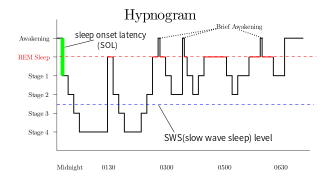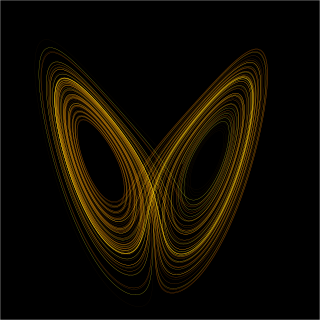Patrick McNamara (born 1956) is an American neuroscientist. His work has centered on three major topics: sleep and dreams, religion, and mind/brain.
Patrick McNamara (born 1956) is an American neuroscientist. His work has centered on three major topics: sleep and dreams, religion, and mind/brain.
In 2022, McNamara, along with Dr. Jordan Grafman of Northwestern University, received a major award from the Templeton Foundation for his seminal contributions to the emerging scientific field of the cognitive neuroscience of religion (See: Cognitive Neuroscience of Religious Cognition) [1] [2]

Cognitive science is the interdisciplinary, scientific study of the mind and its processes with input from linguistics, psychology, neuroscience, philosophy, computer science/artificial intelligence, and anthropology. It examines the nature, the tasks, and the functions of cognition. Cognitive scientists study intelligence and behavior, with a focus on how nervous systems represent, process, and transform information. Mental faculties of concern to cognitive scientists include language, perception, memory, attention, reasoning, and emotion; to understand these faculties, cognitive scientists borrow from fields such as linguistics, psychology, artificial intelligence, philosophy, neuroscience, and anthropology. The typical analysis of cognitive science spans many levels of organization, from learning and decision to logic and planning; from neural circuitry to modular brain organization. One of the fundamental concepts of cognitive science is that "thinking can best be understood in terms of representational structures in the mind and computational procedures that operate on those structures."
Evolutionary linguistics or Darwinian linguistics is a sociobiological approach to the study of language. Evolutionary linguists consider linguistics as a subfield of sociobiology and evolutionary psychology. The approach is also closely linked with evolutionary anthropology, cognitive linguistics and biolinguistics. Studying languages as the products of nature, it is interested in the biological origin and development of language. Evolutionary linguistics is contrasted with humanistic approaches, especially structural linguistics.

A dream is a succession of images, ideas, emotions, and sensations that usually occur involuntarily in the mind during certain stages of sleep. Humans spend about two hours dreaming per night, and each dream lasts around 5 to 20 minutes, although the dreamer may perceive the dream as being much longer than this.

Rapid eye movement sleep is a unique phase of sleep in mammals and birds, characterized by random rapid movement of the eyes, accompanied by low muscle tone throughout the body, and the propensity of the sleeper to dream vividly.
Psychology of religion consists of the application of psychological methods and interpretive frameworks to the diverse contents of religious traditions as well as to both religious and irreligious individuals. The various methods and frameworks can be summarized according to the classic distinction between the natural-scientific and human-scientific approaches. The first cluster amounts to objective, quantitative, and preferably experimental procedures for testing hypotheses about causal connections among the objects of one's study. In contrast, the human-scientific approach accesses the human world of experience using qualitative, phenomenological, and interpretive methods. This approach aims to discern meaningful, rather than causal, connections among the phenomena one seeks to understand.
The neuroscience of religion, also known as neurotheology and as spiritual neuroscience, attempts to explain religious experience and behaviour in neuroscientific terms. It is the study of correlations of neural phenomena with subjective experiences of spirituality and hypotheses to explain these phenomena. This contrasts with the psychology of religion which studies mental, rather than neural states.
Cognitive neuropsychiatry is a growing multidisciplinary field arising out of cognitive psychology and neuropsychiatry that aims to understand mental illness and psychopathology in terms of models of normal psychological function. A concern with the neural substrates of impaired cognitive mechanisms links cognitive neuropsychiatry to the basic neuroscience. Alternatively, CNP provides a way of uncovering normal psychological processes by studying the effects of their change or impairment.

Dynamical systems theory is an area of mathematics used to describe the behavior of complex dynamical systems, usually by employing differential equations or difference equations. When differential equations are employed, the theory is called continuous dynamical systems. From a physical point of view, continuous dynamical systems is a generalization of classical mechanics, a generalization where the equations of motion are postulated directly and are not constrained to be Euler–Lagrange equations of a least action principle. When difference equations are employed, the theory is called discrete dynamical systems. When the time variable runs over a set that is discrete over some intervals and continuous over other intervals or is any arbitrary time-set such as a Cantor set, one gets dynamic equations on time scales. Some situations may also be modeled by mixed operators, such as differential-difference equations.
Pascal Robert Boyer is an American cognitive anthropologist and evolutionary psychologist of French origin, mostly known for his work in the cognitive science of religion. He taught at the University of Cambridge for eight years, before taking up the position of Henry Luce Professor of Individual and Collective Memory at Washington University in St. Louis, where he teaches classes on evolutionary psychology and anthropology. He was a Guggenheim Fellow and a visiting professor at the University of California, Santa Barbara and the University of Lyon, France. He studied philosophy and anthropology at University of Paris and Cambridge, with Jack Goody, working on memory constraints on the transmission of oral literature. Boyer is a Member of the American Academy of Arts and Sciences.

Religion Explained: The Evolutionary Origins of Religious Thought is a 2001 book by cognitive anthropologist Pascal Boyer, in which the author discusses the evolutionary psychology of religion and evolutionary origin of religions.
A religious experience is a subjective experience which is interpreted within a religious framework. The concept originated in the 19th century, as a defense against the growing rationalism of Western society. William James popularised the concept. In some religions, this may result in unverified personal gnosis.
Cognitive science of religion is the study of religious thought, theory, and behavior from the perspective of the cognitive and evolutionary sciences. Scholars in this field seek to explain how human minds acquire, generate, and transmit religious thoughts, practices, and schemas by means of ordinary cognitive capacities.
Harvey Whitehouse is chair of social anthropology and professorial fellow of Magdalen College at the University of Oxford.
Trevor William RobbinsCBE FRS FMedSci is a professor of cognitive neuroscience and the former Head of the Department of Psychology at the University of Cambridge. Robbins interests are in the fields of cognitive neuroscience, behavioural neuroscience and psychopharmacology.

The evolutionary origin of religion and religious behavior is a field of study related to evolutionary psychology, the origin of language and mythology, and cross-cultural comparison of the anthropology of religion. Some subjects of interest include Neolithic religion, evidence for spirituality or cultic behavior in the Upper Paleolithic, and similarities in great ape behavior.
Deirdre Barrett is an American author and psychologist known for her research on dreams, hypnosis and imagery, and has written on evolutionary psychology. Barrett is a teacher at Harvard Medical School, and a past president of the International Association for the Study of Dreams (IASD) and of the American Psychological Association’s Div. 30, the Society for Psychological Hypnosis. She is editor-in-chief of the journal Dreaming: The Journal of the Association for the Study of Dreams and a consulting editor for Imagination, Cognition, and Personality and The International Journal for Clinical and Experimental Hypnosis.
Psychology encompasses a vast domain, and includes many different approaches to the study of mental processes and behavior. Below are the major areas of inquiry that taken together constitute psychology. A comprehensive list of the sub-fields and areas within psychology can be found at the list of psychology topics and list of psychology disciplines.
Wesley J. Wildman is a contemporary Australian-American philosopher, theologian, and ethicist. Currently, he is a full professor at the Boston University School of Theology, founding member of the faculty of Computing and Data Sciences, and convener of the Religion and Science doctoral program in Boston University's Graduate School. He is executive director of The Center for Mind and Culture, founding co-director of the Institute for the Biocultural Study of Religion, and founding co-editor of the journal Religion, Brain & Behavior. Wildman's academic work has focused on interpreting religion and building theories of religious beliefs, behaviours, and experiences that acknowledge value in longstanding traditions while attempting to remain intellectually viable in light of the biological, cognitive, evolutionary, physical, and social sciences. He is an important figure in the religion and science field, along with scholars such as Robert John Russell, Nancey Murphy, and John Polkinghorne.
Cognitive ecology of religion is an integrative approach to studying how religious beliefs covary with social and natural dynamics of the environment. This is done by incorporating a cognitive ecological perspective to cross-cultural god concepts. Religious beliefs are thought to be a byproduct of domain-specific cognitive modules that give rise to religious cognition. The cognitive biases leading to religious belief are constraints on perceptions of the environment, which is part and parcel of a cognitive ecological approach. This means that they not only shape religious beliefs, but they are determinants of how successfully cultural beliefs are transmitted.
Kelly Bulkeley is an American author and researcher in the fields of dreams and the psychology of religion.